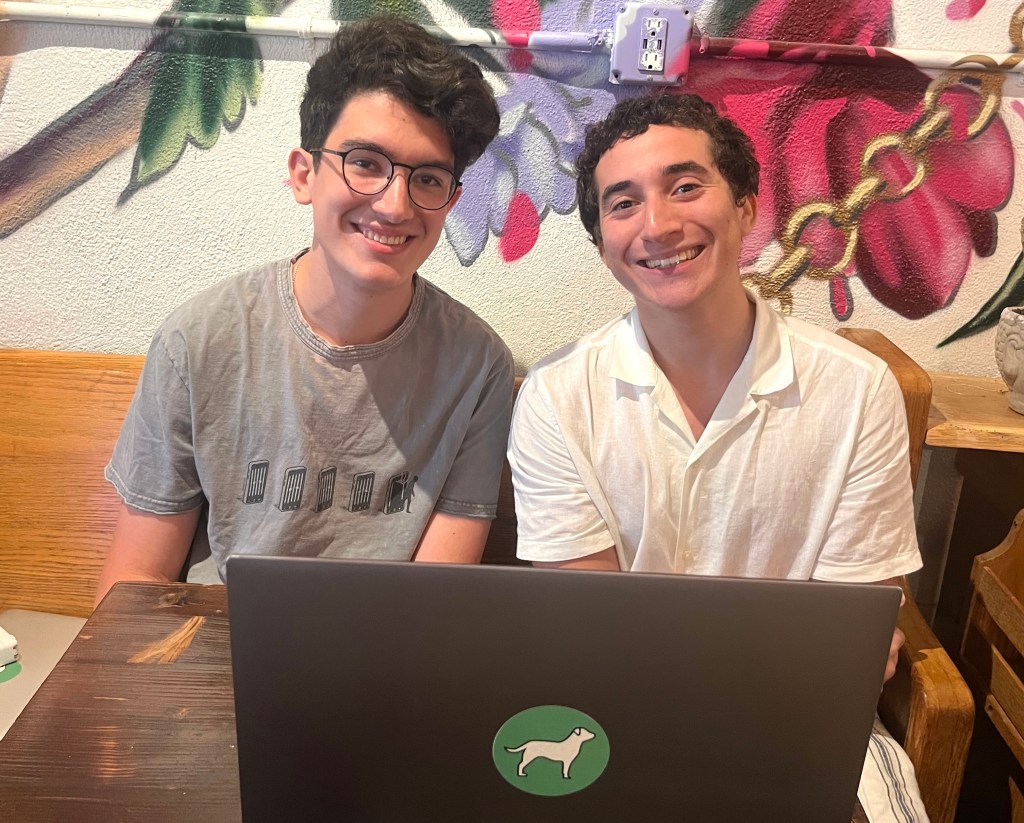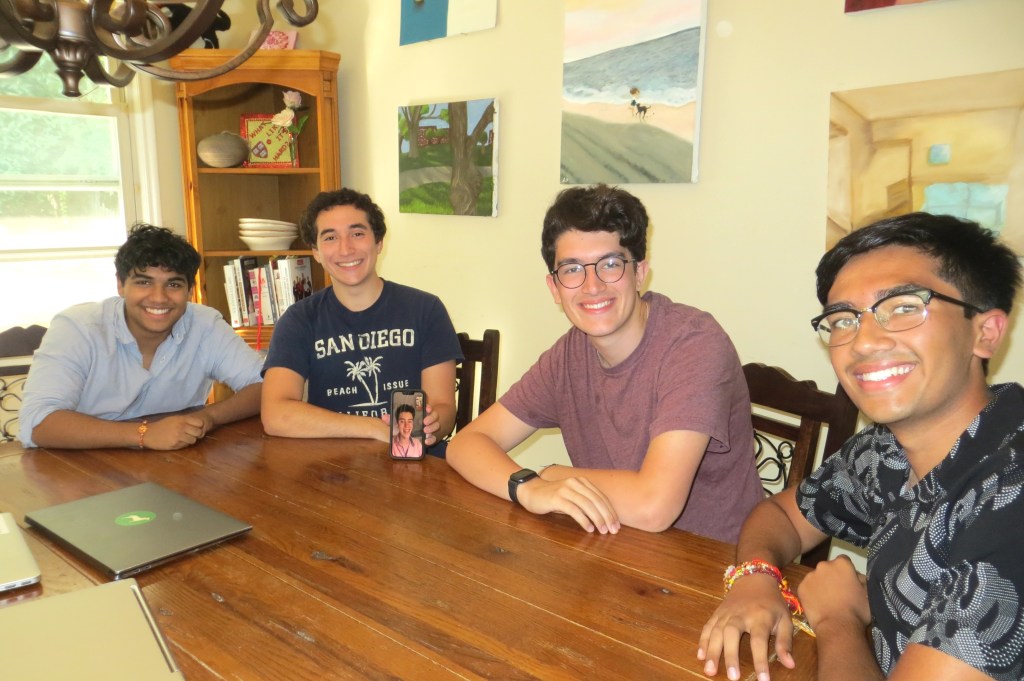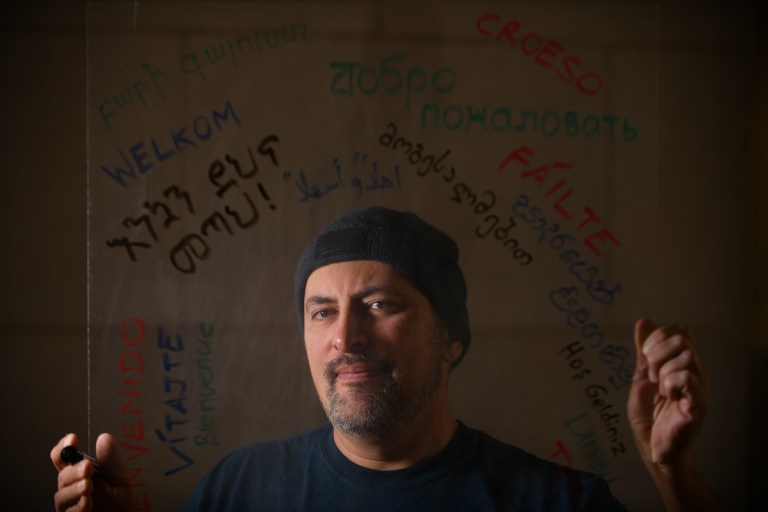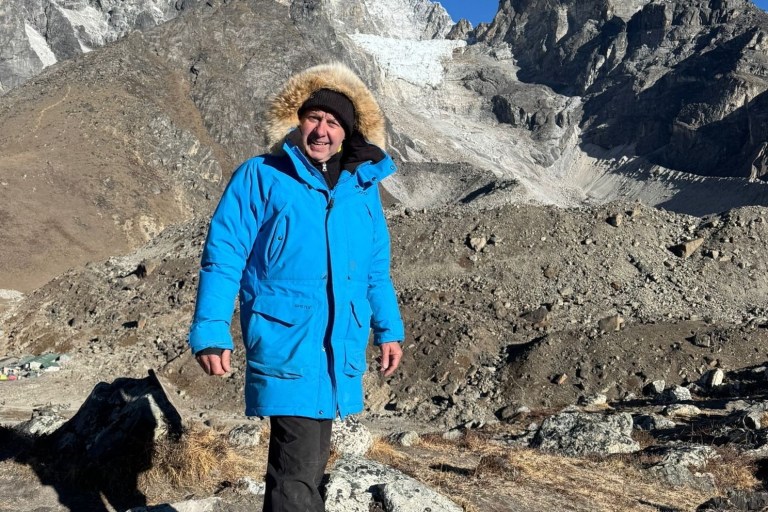Volunteering is a sort of superfood for the soul. On top of it making a meaningful difference in the world, the personal benefits can’t be beat: You can meet people, learn new skills, increase your confidence, cultivate a sense of purpose, and even boost your health. Will Rosenthal, a second year computer science major at Cornell, knows all that — it’s why he co-founded Samaritan Scout, a nonprofit search engine for discovering volunteer opportunities.
“I really have been volunteering as long as I can remember,” the 19-year-old told Nice News, adding: “It’s a source of joy like no other.” His current position as the search engine’s chief technology officer is also unpaid. He got involved through Dvora Inwood, whose daughter inadvertently conceived of the concept after struggling to find volunteer opportunities as a high school freshman a few years back.

Samaritan Scout Software Engineer Jack Greenwald (left) and Chief Technology Officer Will Rosenthal (right)
“She said, ‘There should be a search engine for volunteering.’ And that just stayed in my brain. But, you know, we’re all busy. I’m working, I’m a mom. I don’t have time to create a search engine because my daughter wants one,” Inwood, who has a background in technology product management, recalled with a laugh.
But that changed after Inwood was diagnosed with Stage 4 colon cancer. She quit her job to focus on her health (she’s now cancer-free), and eventually found herself ready for a new start. Wanting to “do something meaningful,” Inwood remembered the search engine idea and pitched it to Rosenthal, who had gone to school with her daughter in New Jersey.
“I knew I wanted to help build the architecture of the search engine, and I was fully confident that I could,” he shared. And that architecture — which he began developing in April 2023, the spring before he started college — is what makes Samaritan Scout unique.

(From left) Pradhi Pakkerakari, Will Rosenthal, Wyatt Sell (on phone screen), Jack Greenwald, and Akash Dubey
While searchable directories like VolunteerMatch have been around for years, the downside is that they require often overworked organizations to write and list their entries themselves (and sometimes pay to do so). A simple Google search isn’t always the most effective method either, as many nonprofits don’t invest in the elements that would help them rank high in the results, Inwood explained.
Samaritan Scout is designed to be the best of both worlds, thanks to the AI-assisted back end that Rosenthal and a small team of fellow Cornell students built in their free time. It operates similarly to Google, but only crawls and returns information from nonprofit websites.
Inwood enlisted Kavita Mahabaleshwarkar, a volunteer who spent countless hours designing the UX and guiding student interns in creating the front end of the site (the adorable Samaritan Scout logo is actually based on a photo she took of Inwood’s dog), and it officially went live in July 2024.
“What I find really exciting about Samaritan Scout is that it came from a teenager’s idea, and then she’s at a magnet school for business and tech kids, and they’re the ones that built this. Kids built this platform,” Inwood shared, adding: “I had all these volunteer software developer friends from my years in tech, you know, grownups, people over the age of 30. And they couldn’t agree on which way to go forward. … We just sort of discussed it for a year, and then these teenagers said, ‘Well, let me see what I could do.’”
Initially, the search engine only displayed results from New York and New Jersey, but by the month after it launched, the teen-led team had expanded it to include Utah, Wisconsin, Maryland, Washington D.C., and Virginia, and even added an AI feature that suggests personalized recommendations, ala Netflix or GoodReads.
As of today, Samaritan Scout also includes results for opportunities in Minnesota and North and South Dakota. The team is currently working on Washington state and Colorado, and gearing up to add bigger states like Texas, Illinois, and Florida. Each new addition requires a great deal of back-end activity, human effort, and of course, money. So far, the nonprofit has been funded by charitable gifts (you can donate here), but the team is starting to apply for grants as well.
The goal is to eventually serve the entire country and regions around the world, and it’s needed now more than ever. The COVID-19 pandemic resulted in a steep drop in volunteer engagement rates (which are on the rebound but have yet to fully recover) — exacerbating an already existing decline. In 2018, the University of Maryland’s Do Good Institute reported that “fewer Americans are engaging in their community by volunteering and giving than in any time in the last two decades.”
Meanwhile, nonprofits have been reporting an increasing demand for their services. “This gap in funding and staffing makes volunteers even more important for many mission-driven organizations. Nonprofits will likely face staff burnout or service delivery issues if this continues,” Nathan Dietz, a senior researcher with the Do Good Institute, said in 2023.
Hopefully, Samaritan Scout will play a significant role in bridging that gap, introducing service-oriented people to the organizations that need them. As Rosenthal said: “We are simply trying to help volunteers volunteer.”
RELATED: Caring for Grandkids and Volunteering Can Reduce Loneliness in Those Over Age 50, Research Finds











